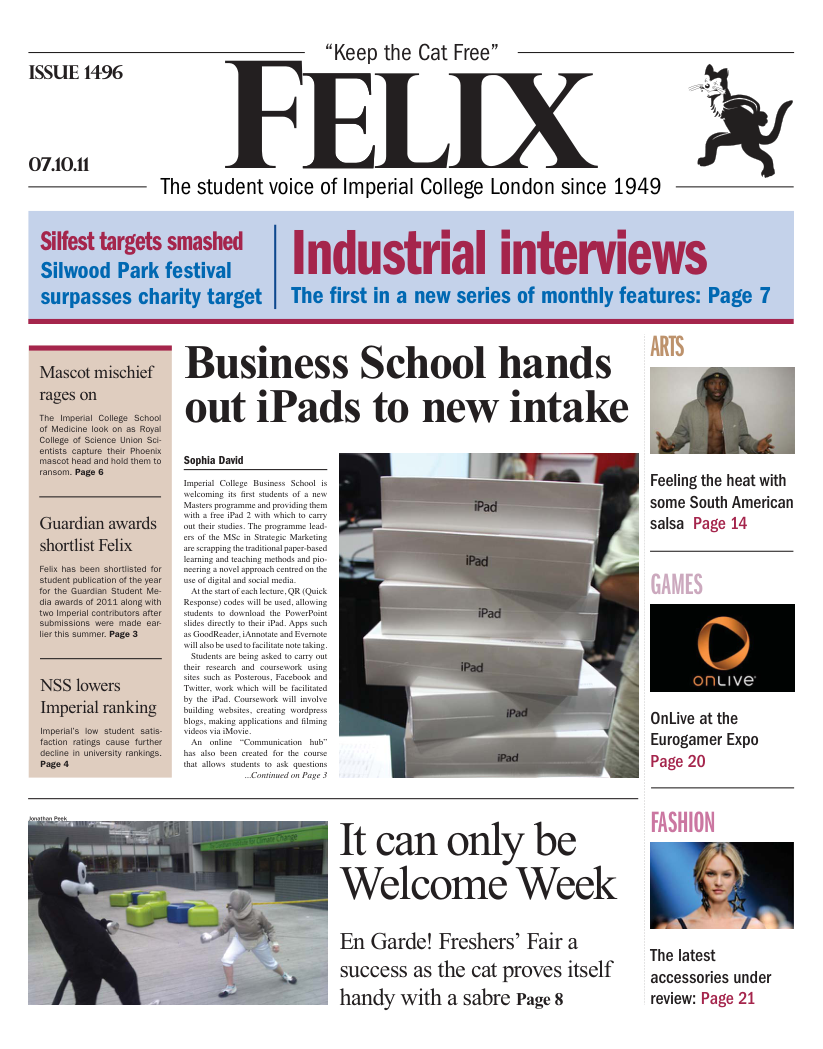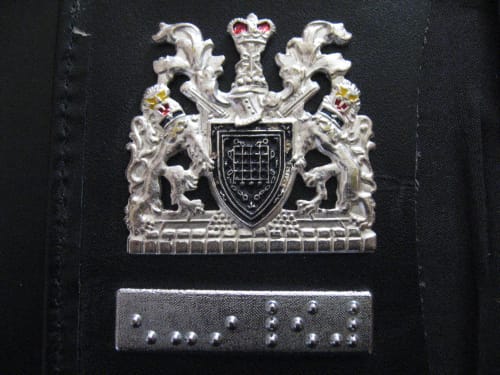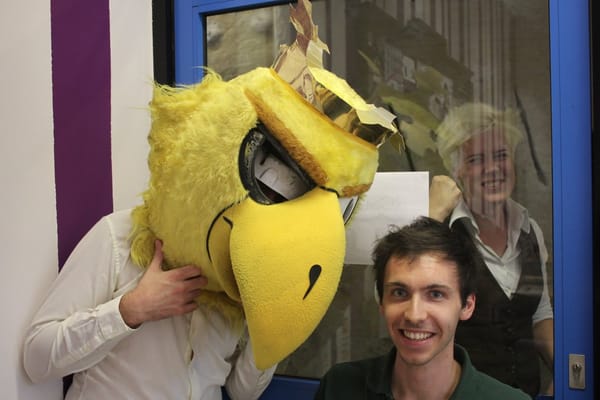Interview: Dr Martin Dare-Edwards
Alice Yang bring us the first in a series of monthly interviews with some of the UKs premier industry leaders
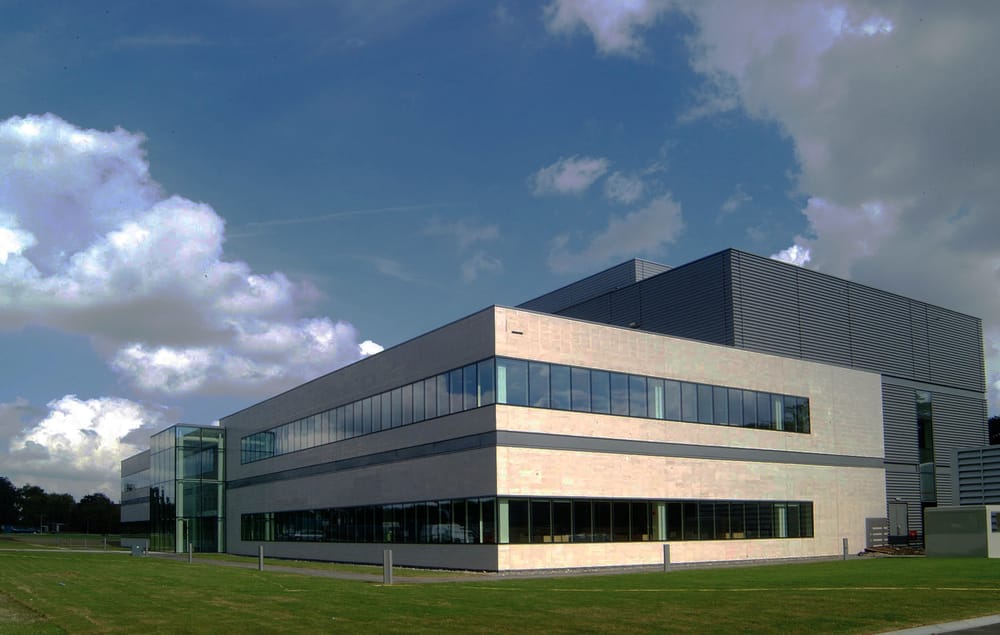
A world leader in petroleum additives, Infineum is a 50/50 joint venture between Shell and ExxonMobil creating products used in 1/3 of the world’s vehicles. I interview Dr Martin Dare-Edwards; the company’s UK Country Manager with nearly 30 years experience in the industry after graduating and completing a PhD in Chemistry at Oxford University.
Tucked into the green suburbs of Oxfordshire lies a small cluster of buildings, home to one of the most successful petroleum additives companies across the globe. Dr Martin Dare-Edwards himself greets me apologising for the modesty of the site explaining that at Infineum "we prefer to impress with our technology, not our buildings".
If you want to have a varied career, go into industry
The interview is conducted in the James Watt Building, which Dr Dare-Edwards refers to as his own, having led its construction of £20m. The building is split into mirroring quarters. "It’s open plan and also egalitarian, which means that everyone is equal, except for this glass front" signalling to the glass planes separating (yet giving a full view into) the connecting laboratories.
"At Infineum, what we’re doing is to try and reduce the environmental effect of transportation now with the internal combustion engine, rather than waiting 30 years for the technology of electric vehicles and fuel cells to finally kick in."
"What we sell to our customers, the oil companies, is an additive package containing up to 50 different chemical components in a concentrated form which when you take the package and pour some into oil, it makes a lubricant."
He translates this for me, since my brain has long forgotten all its chemistry, by comparing the process to the making of tropical fruit juice cordial. "Imagine for a moment if you buy it from Tesco, you pour water in and you have something drinkable. We make the cordial, but the cordial itself is made up of a number of different components; mango, pineapple…."
As I finally begin to nod in comprehension, he explains the process in more detail. "What these laboratories are developing is the individual tropical fruit juice types in a concentrated form. They are detergents, to keep the engine clean; dispersants, because there are particles that are created during the operation of an engine, including soot, and anti-oxidants to try and avoid the degradation of the oil and anti-wear additives which go onto the surface of the metal, so when the pieces of metal come into contact it reduces the tendency of the metals that adhere to each other."
Realising that chemistry is not strong subject for me, Dr Dare-Edwards suggests we move away from the labs and into a meeting room as I inquire into his day-to-day activities.
"I maintain the integrity of all of the operations on this site. All of the contracts for running the site are under my responsibility. At any point in time, if any of these facilities are not available, then the whole operation grinds to a halt very quickly and on the research end of the business, some of the time scales we work on are very tight."
"I happen also to be a member of the technology leadership team, also known as the Global R+D leadership team, which is important in ensuring the way the projects are selected, prioritised, and that the way they are conducted is as effective as possible."
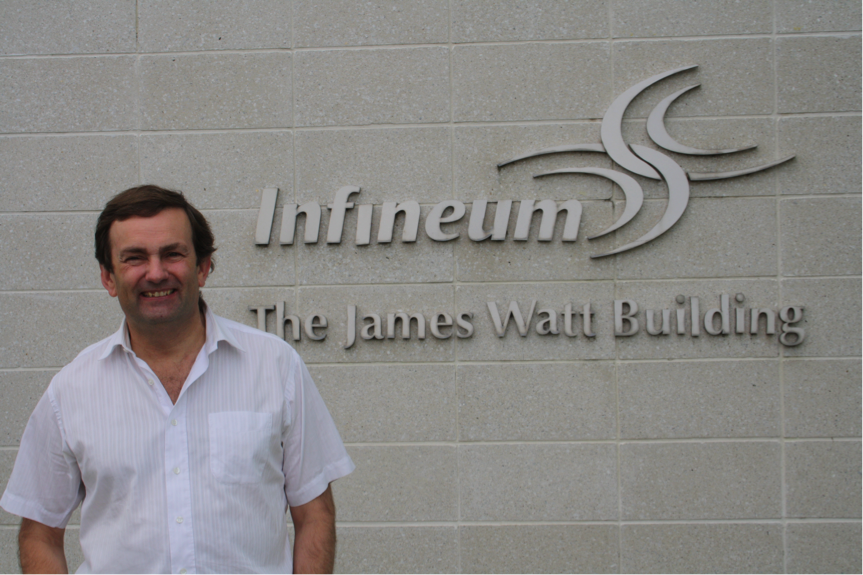
Having graduated with a First Class Honours in Chemistry from the University of Oxford, yet now being in such a managerial role, I wonder if he ever misses the safety glasses and white coats. "I did miss it to start with. One of the main reasons why I took up to do a scientific degree in the first place is that I am a curious person, I want to understand why and beyond that, I wonder if it can be made better than it is currently. If I worked in a finance house, just managing money, I wouldn’t gain the same pleasure as I do now. However I’ve been very fortunate to still gain some of the excitement from discovering things, but I don’t actually have to get my hands dirty so to say. The closest thing I do to practical chemistry is cooking at home."
State the obvious and question the given truth
Upon the subject of his PhD, which he also took at Oxford, I ask why it was he chose to do one as opposed to entering the industry directly. "I didn’t know what industrial research was like; I was never introduced to it at university. I think the largest problem is people just don’t know what’s out there. I went to do a PhD because at that particular time I might have imagined I wanted to become a university professor."
On applying for fellowships, Dr Dare-Edwards came across Shell and describes to me how this proved to be life changing. "If you stay in academic research you typically have to stick with the subject you already started working on whether you like it or not, or else you can’t get funding. In the industrial, world people will harness you on the basis that you have a track record of being able to learn something quickly, get it right, do some research and get an outcome. They tend to take a calculated gamble in putting someone in a role they can’t do yet. The academic world would never do that. In the academic world, the chicken has got to come before the egg."
Shell gambled on him to the tune of £110,000 to study the behaviour of lubricants in a working lubricated contact, the resulting research earning him a prestigious academic award.
"If you want to have a varied career, go into industry,’ he advises as I wonder how it is he gained the large variety of business management skills he has harnessed. ‘Shell had a management in research course to help you understand people management. It taught me what was necessary to motivate people and manage their performance. This provided a good foundation."
Beyond the Infineum campus, Dr Dare-Edwards is also Chairman of the Oxfordshire Local Enterprise Partnership (Oxon-LEP) and the Oxfordshire Innovation and GrowthTeam (OxIGT), both of which give advice and support to local businesses, helping them to develop.
I question whether or not the government cuts have then in fact hit Oxfordshire and its local support projects. "Government cuts are a big issue in various regards; infrastructure, even the provision of skills, apprentice places and so on are all affected by government cuts. So at the same time the government wants the economy to grow, a number of the features that it hopes to grow have been taken away."
After such a successful career, and now in a demanding role he obviously enjoys, I ask Dr Dare-Edwards what advice he’d give to our readers. "In terms of what you can control, undergraduates should find opportunities to visit industrial research activities in the UK and see what it’s about."
"Also, it would be useful for people to recognise what business management is actually about. It’s not all about just managing financial affairs; there are people in there and new ideas to be fostered. The sourcing of money and how to turn those ideas into something practical is itself very interesting and will intrinsically benefit from somebody who’s had a scientific background."
Before ending the interview I ask Dr Dare-Edwards what lessons he has learnt from his experiences and what he looks for when employing people. After a deep thoughtful silence he replies, "I like people to be curious, state the obvious and question the given truth because what you’ve always told to be true might not be."

